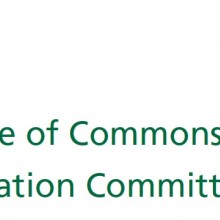The Education Select Committee’s inquiry into the impact of Covid-19 on education met on Wednesday, looking into the support for children with Special Educational Needs. Giving evidence were Amanda Batten from the Disabled Children’s Partnership, Ali Fiddy from the Independent Provider of Special Education Advice, Imogen Jolley at law firm Simpson Millar, and Philippa Stobbs from the Special Educational Consortium.
The chair of the committee, Robert Halfon MP, opened the session by asking if children with SEN had been forgotten or left behind more than other children during the coronavirus lockdown. Amanda Batten responded that in a survey they had sent out to over 4000 families, there was a picture of exhaustion and stress, with 45% saying their child’s physical health has worsened, and just over 70% said emotional and mental health was worse. Imogen Jolley also discussed a survey her firm had sent out which included 400 EHCP families, with 60% of families seeing a significant drop off in services.
Philippa Stobbs also responded that for many children, they were being forgotten, and the waiving of normal duties had led to high variability in what services were being provided, and exacerbating pre-existing inequalities in the system. However, she also noted that in some areas there had been stunning provision.
This theme continued throughout the session, with Ali Fiddy saying that many families felt ‘utterly abandoned’, and that the pandemic is set against a backdrop of deepening crisis in SEND provision. Robert Halfon said that the evidence being given was ‘very, very depressing’.
Addressing these exacerbations of the inequalities in support for SEND will be crucial as schools open more widely, and all witnesses agreed that there was a need for specific catch-up plans. Philippa Stobbs said that we would need to rethink the next term as a period of transition, with an approach of a curriculum about physical and mental wellbeing, reestablishing routines and re-socialising. Imogen Jolley emphasised the need to get agencies to engage better with each other and schools to prevent a disjointed response.
Schools North East’s Healthy MindED Conference this week also emphasised the importance of a proper plan of reintegration and whole school approaches to mental health. While the evidence provided at the Education Select Committee is bleak, the discussions they had around transition and the sessions at our conference show that these problems are not insurmountable, provided the right long term support is targeted at those who need it most.
